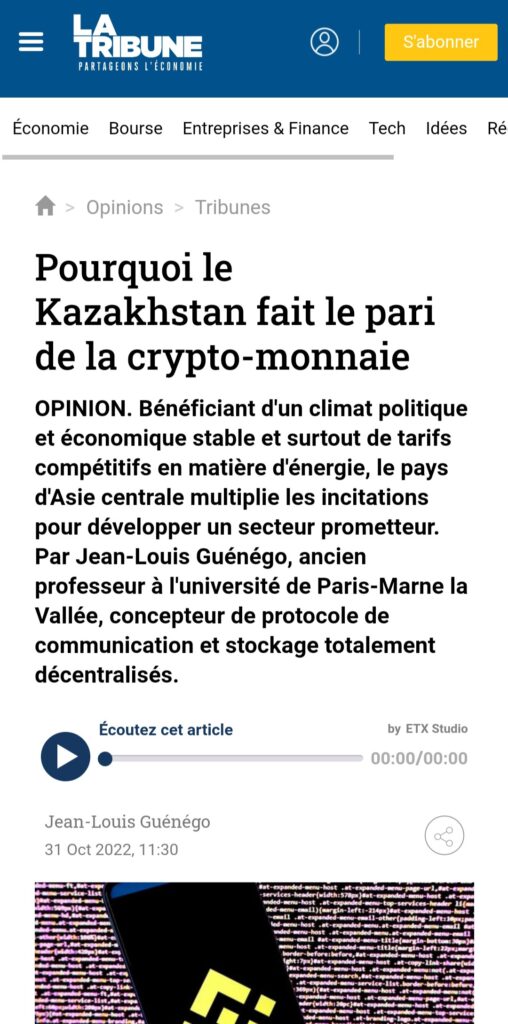ASTANA – The La Tribune French weekly financial newspaper, published an opinion article on Oct. 31 where Jean-Louis Guenego, former professor in physics at the University of Paris-Est Marne-la-Vallée and developer of decentralized communication and data storage protocols, welcomes Kazakhstan’s efforts to become a new crypto hub in Central Asia.

According to Guenego, owing to political and economic stability and competitive energy prices, Kazakhstan is strengthening incentives for developing the cryptocurrency sector.
In just a few years, the country has risen to become one of the world’s leading bitcoin miners, with at least 18 percent of the global hash rate (a measure of the computational power per second used when mining), placing it second only to the United States and ahead of China, which banned mining in 2021 despite previously making up for 65 percent of the global hash rate. After then, a significant number of Chinese miners moved to Kazakhstan.
On Oct. 26, Binance CEO Changpeng Zhao announced that the National Bank of Kazakhstan intends to integrate its digital currency into Binance’s BNB blockchain. According to Guenego, this is an essential step in legitimizing cryptocurrencies in a country considered by experts as a mining country rather than a country of bitcoin trading or exchanges.
In early October, Astana Financial Services Authority (AFSA) and Binance signed a memorandum of understanding to coordinate efforts to combat financial crime. Kazakh authorities are generally developing increasingly industry-friendly regulations, such as allowing cryptocurrency exchanges to open bank accounts.
By regulating this sector, the country fosters the long-term development of the cryptocurrency industry and establishes itself as a crypto hub in Central Asia and among former Soviet states, writes Guenego.
